In the heart of Louisiana stands a dedicated community of water professionals. With deep multi-generational roots anchoring them to the lush wetlands, they exhibit a profound commitment to the communities they cherish and serve. Darius Bonton is a prime example of such dedication and expertise within this community.
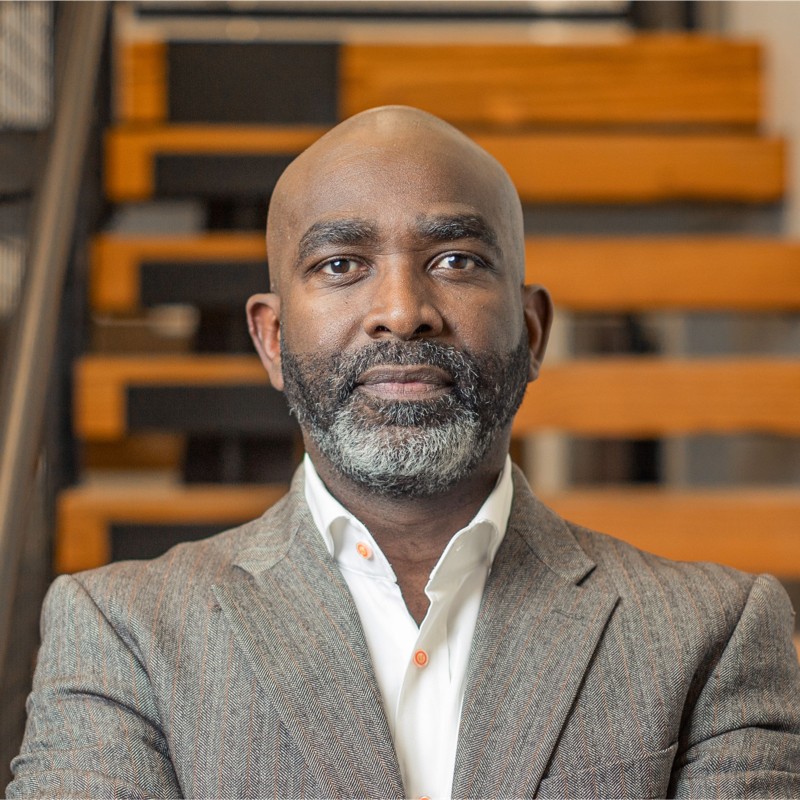
Impeccably dressed at seemingly all times, with piercing brown eyes and a beard slightly greying in the middle, Darius Bonton is a Baton Rouge native who learned civil engineering in college at Southern University and received his MBA at Tulane in nearby New Orleans. “I started my career off as a structural engineer and then pivoted to focus on transportation planning from an environmental compliance perspective.”
In 2012, Darius dug into the niche of water, wastewater, and stormwater when he founded Bonton Associates along with his wife LaMiesa, who serves as Director of Operations. His brother Marcus joined later, running the transportation side of the business, and the consultancy has expanded over the past decade to include around 30 professionals serving clients like the cities of Baton Rouge and Shreveport and smaller operations in between. Their value proposition is very focused on leveraging data and technology to engineer thoughtful, sustainable water and transportation solutions to help communities thrive. A quick look on their website shows a real cross-section of Louisiana – and lots of smiling faces.
The early work of the firm was centered around helping Baton Rouge bring its ongoing SSO (Sanitary Sewer Overflow) problems into compliance and resolve a long-standing consent decree with the EPA. “It was the opportunity to support the SSO program that really opened the door for water, and I haven’t looked back. Our goal is to support our clients with their water challenges wherever they may be along the spectrum of the water cycle. Whether it’s managing stormwater and its runoff, reducing flood risks, or water treatment and distribution of potable water, we look at every drop of water as the same drop of water. It could be a stormwater issue, a water distribution issue, or a wastewater issue.”
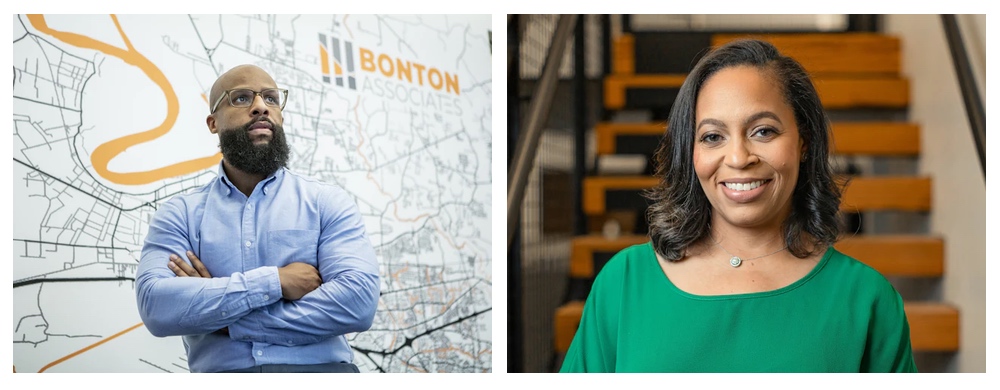
Technology as a competitive differentiator
Darius is a firm believer in the power of technology and data to solve problems. “One of our core values as a company is technology. As we compete for projects, oftentimes capacity and firm size is seen as a proxy for quality and responsiveness. Our philosophy is that bigger is not necessarily better. Early on, we saw technology as the equalizer that allows us to scale our services so that we can deliver more value with a smaller firm.”
True to his word, Darius is an early adopter of Autodesk’s next-generation Info360 Asset, which focuses on using the power of data and analytics to streamline inspection workflows, justify risk-based decisions, and optimize capital improvement programs. “We’ve actually been on board since adopting InfoAsset Planner back in the day,” he says. “We’ve always embraced new technology, probably more so than traditional firms. This obviously comes at a considerable capital commitment, but when we are talking to prospective clients, we see it as a differentiator for our firm to show that we can harness data in a way that can scale with their future needs.”
“In particular, we see the opportunity of Info360 Asset with some of our smaller clients who don’t have administrative and technical staff to help them develop deeper insights based on data and make more informed decisions about where they need to spend their limited capital and O&M dollars,” he continues. “Let’s face it, most smaller municipalities rely on federal stimulus because they don’t have the tax base or the rate base for full funding. They need a compelling use case and pitch for big projects, and we feel like data can help tell those stories.”
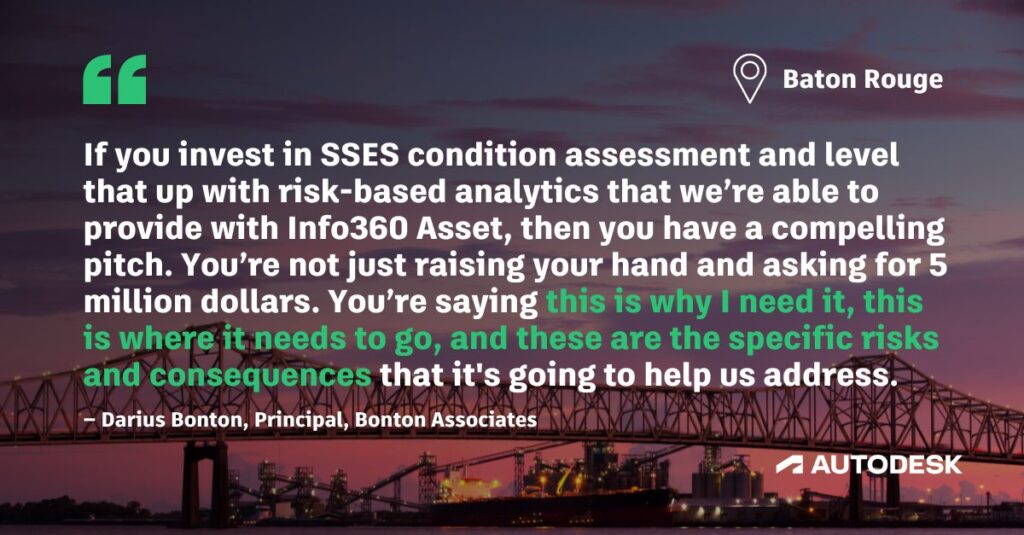
Creating the right pitch has indeed become increasingly important in Louisiana, especially since the IIJA opened up huge opportunities around federal grants for water utilities. “If you invest in SSES (Sanitary Sewer Evaluation Survey) condition assessment and level that up with risk-based analytics that we’re able to provide with Info360 Asset, then you have a compelling pitch. You’re not just raising your hand and asking for 5 million dollars. You’re saying this is why I need it, this is where it needs to go, and these are the specific risks and consequences that it’s going to help us address.”
Taking full advantage of CCTV
CCTV cameras have become the accepted industry method for seeing underground to understand the health of sewer and drainage pipes because they can efficiently generate hundreds of hours of footage across thousands of pipes. But without effective asset management software to reliably capture and match the footage to the right assets, water utilities too often find their survey footage going unused, the digital equivalent of binders of reports collecting dust on an office shelf.
The promise of asset management software is that it takes advantage of real-world data gathered from inputs like CCTV to help you make better decisions and justify them to stakeholders. Good software allows you to capture asset material, size, and depth in an asset registry or GIS system. Better software can help you integrate that data into a hydraulic model, helping you create a digital twin of your system that always matches what’s going on in the field. Superior software will let you upload and process footage directly from the field and into the cloud so it can be automatically incorporated into your analytics and report templates. Soon, water professionals will be able to do even more with Info360 Asset like automatically issuing defect scores across an entire network, which is one of the most promising new uses of AI in water.
An AI-powered digital twin may be what water professionals are ultimately aiming for, but you don’t go from dusty binders to AI without first instilling a culture of data collection and inspection. If you don’t implement effective workflows and internal processes around collecting and storing CCTV data that employees can easily follow – and most importantly teach them how to interpret and use the results – you won’t be able to realize the true benefits of a CCTV program, which can be significant.
This is why you hire a professional.
A good consultant can step in, collect a utility’s historical data and establish future processes for inspections going forward so that workers, and ideally everyone else in the organization, can peek into the system whenever they need to, trusting that the asset information is always accurate and reliable.
A pilot program for Baton Rouge
Recently, Bonton Associates approached the city of Baton Rouge, through their program management partner Jacobs, to perform a pilot study to see if incorporating new data-driven analytics and decision trees in this way is something the city would be interested in. They want Baton Rouge and other clients to consider a new proactive, technology-driven option and show them how analytics can help them decide what gets evaluated and what gets prioritized with their limited annual sewer rehab dollars.
“We’re working with Baton Rouge on a pilot test within Info360 Asset to formulate a means of using their asset register (CMMS) and CCTV data to address overflow challenges and fix problems proactively.” says Bonton Professional Engineer Charles Caballero, Professional Engineer. “Our strategic goal is to eliminate SSOs,”
“Our clients who haven’t embraced digital workflows typically have tons of SSES data that they’ve acquired over the years, some of which they may not have really utilized,” says Darius. “When they turn their CCTV data over to us, we can upload it into Info360 Asset so they can see the historical and current condition data and show them how we’ve built the decision trees. We find that if they have an active role in defining those weights and factors that calculate CoF, they’re more likely to embrace the results of the decision trees.”
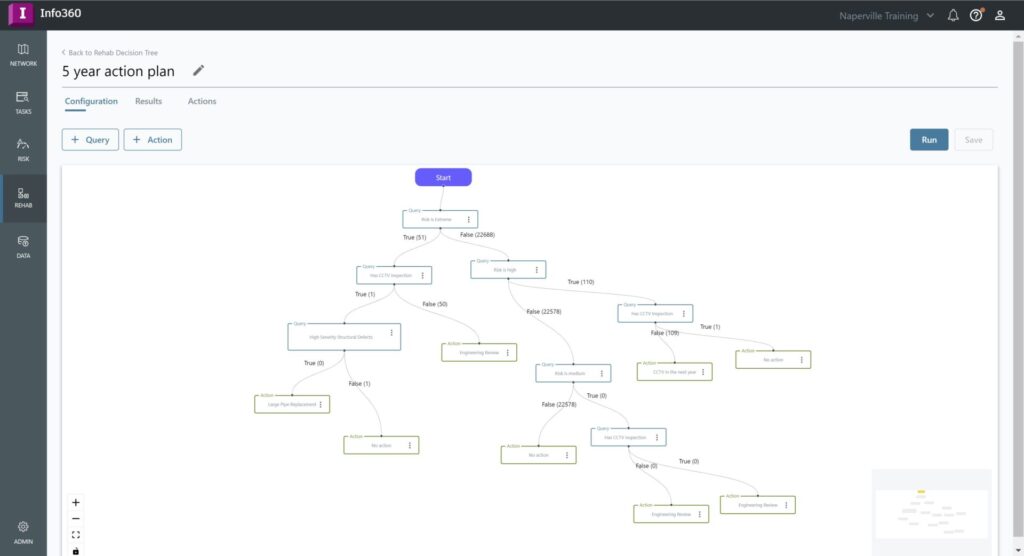
Of course, moving a utility’s workforce from a reactive mindset, manual processes, and intermittent Excel-based spreadsheet reporting to proactive, automated, always-up-to-date analytics isn’t as simple as buying new software. The shift in mindset requires an expert teacher, organizer, and communicator, someone who knows a utility’s specific history of work processes and their openness to embracing change.
This is why you hire a local.
A trusted voice between community and commerce
Last year, Louisiana became the 42nd state to declare stormwater to be a utility, which was a big win for local and state water professionals because it establishes the principle of a dedicated funding mechanism to pay for community stormwater management programs, which are often given short shrift in municipality budgets. This could help Baton Rouge make enormous gains in curtailing their SSO issues by addressing litter, water pollution, and flooding problems much more comprehensively.
More and more states are establishing similar frameworks for stormwater-as-utility, but that is just step one. Step two is securing a reliable source of funding, which sometimes means putting the issue up to a public vote in a referendum, a risky proposition in some places. Although stormwater utility fees are designed to be equitable by measuring the amount of impermeable surfaces on a plot of land, homeowners and business owners with a large physical footprint may see this just a new type of tax. This is why it’s crucial for political leaders to be adept at communicating the important reasons and significant benefits of funding forward-thinking infrastructure investment.
What can consultants do in such a tricky political environment to help push everyone towards progress – to help water utilities get past step one and secure the funding they desperately need? They can serve as a trusted voice between community and commerce, which is what Bonton Associates did by hosting a Stormwater Summit with the Louisiana Stormwater Coalition, bringing together nearly 200 public water system representatives from around the state.
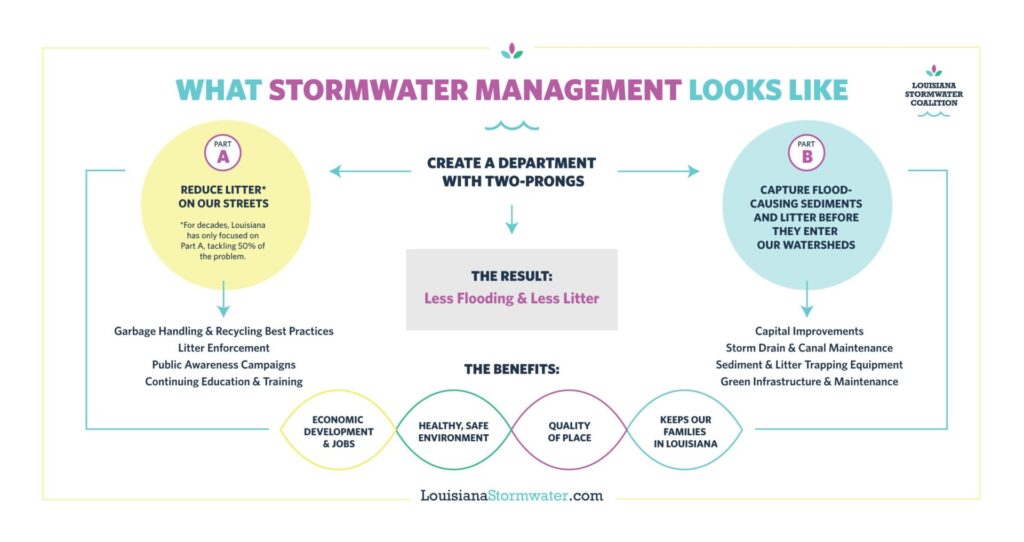
The 2022 Stormwater Summit was the culmination of Bonton Associates’ 10th year anniversary celebration, which they celebrated with a new program or event for each season of the year. With a focus on giving back to the community, they sponsored a local theater production and published Drips and Drops and Splashy Facts About Water, an educational coloring book designed for children and teachers from kindergarten through second grade, partnering with the Baton Rouge Alliance for Students to distribute it to schools statewide. They also offer college internships in their Baton Rouge and Shreveport offices, helping deliver on-the-job education that helps accelerate student careers.
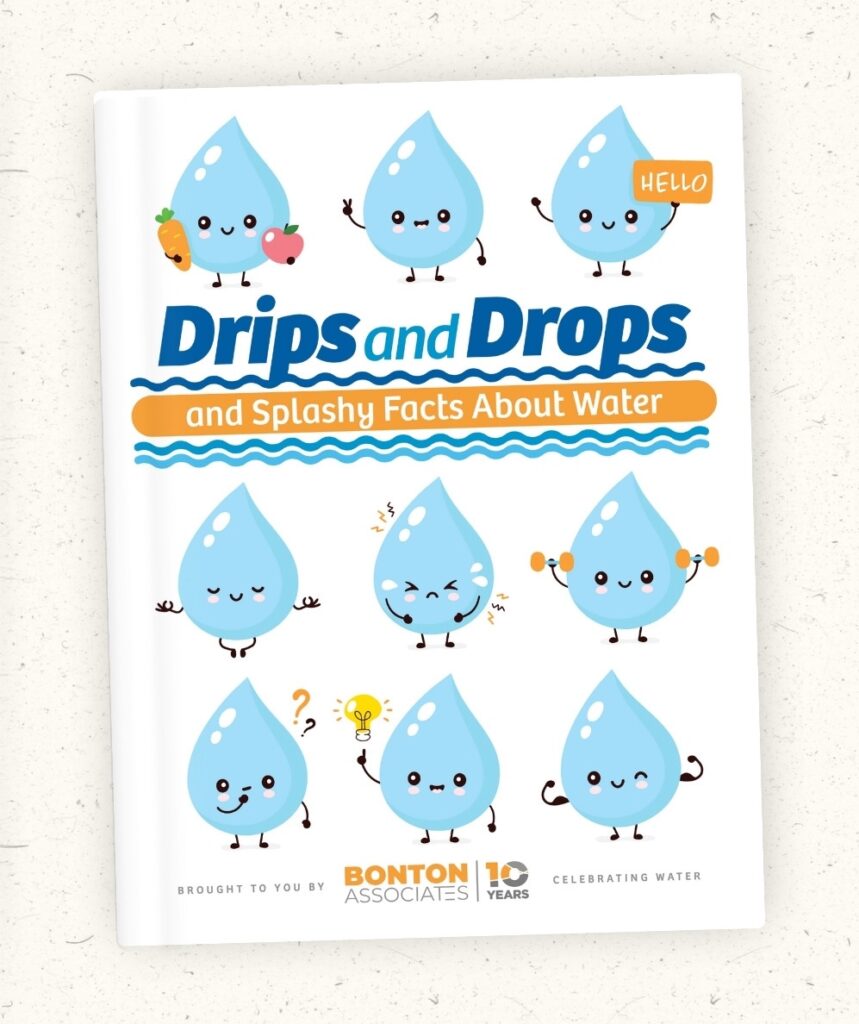
They’ve become a trusted voice in the community and a reliable consultancy for water utilities, and Darius is excited about the next 10 years. “From a business perspective, we’re very comfortable where we are because we understand that the demand for water will never go away, whether that’s managing water as a stormwater or flood risk, harnessing water for consumption or energy, or disposing of water in a way that’s environmentally aware and compliant. It’s a good place to be for a sustainable business.”